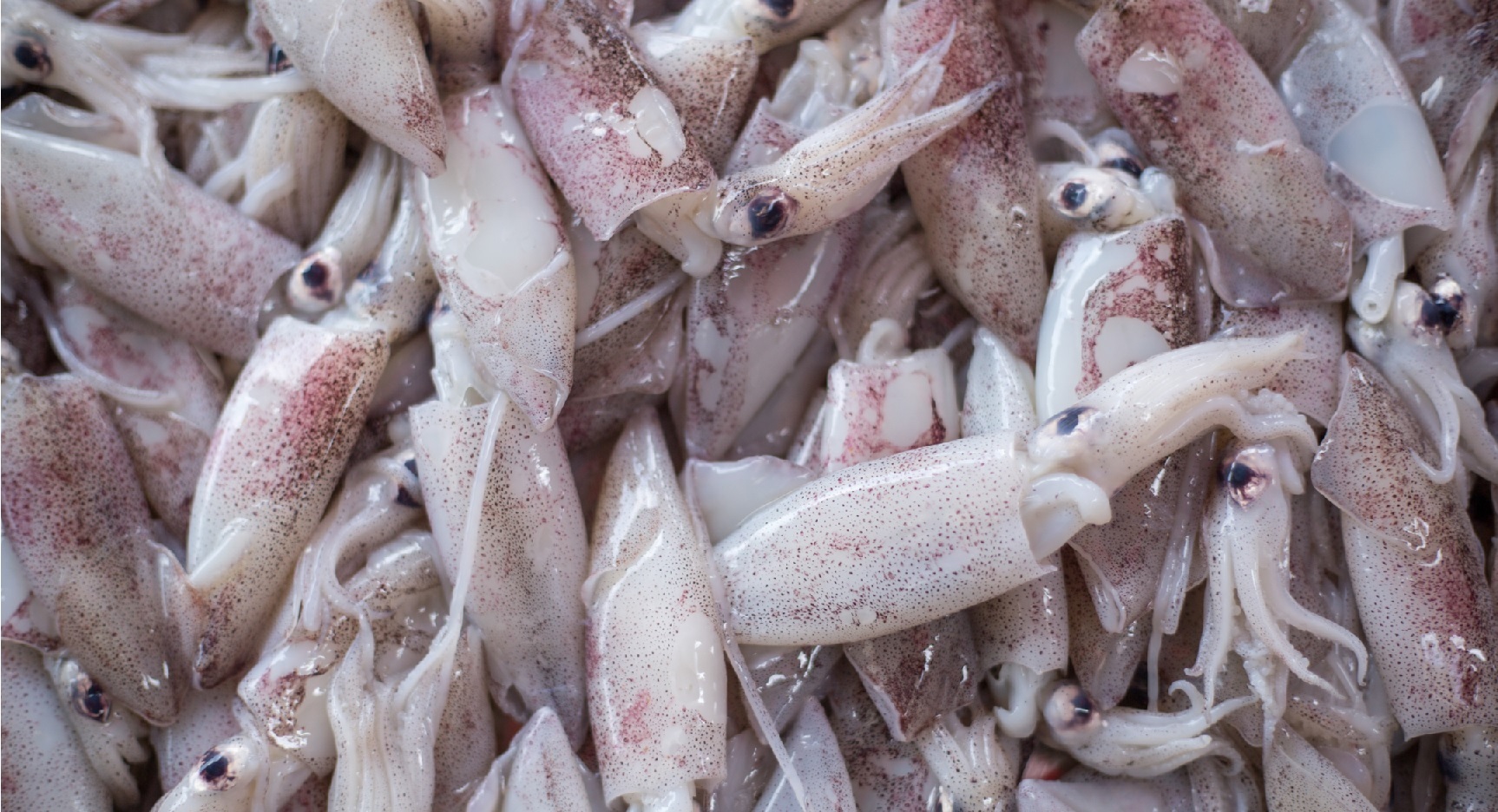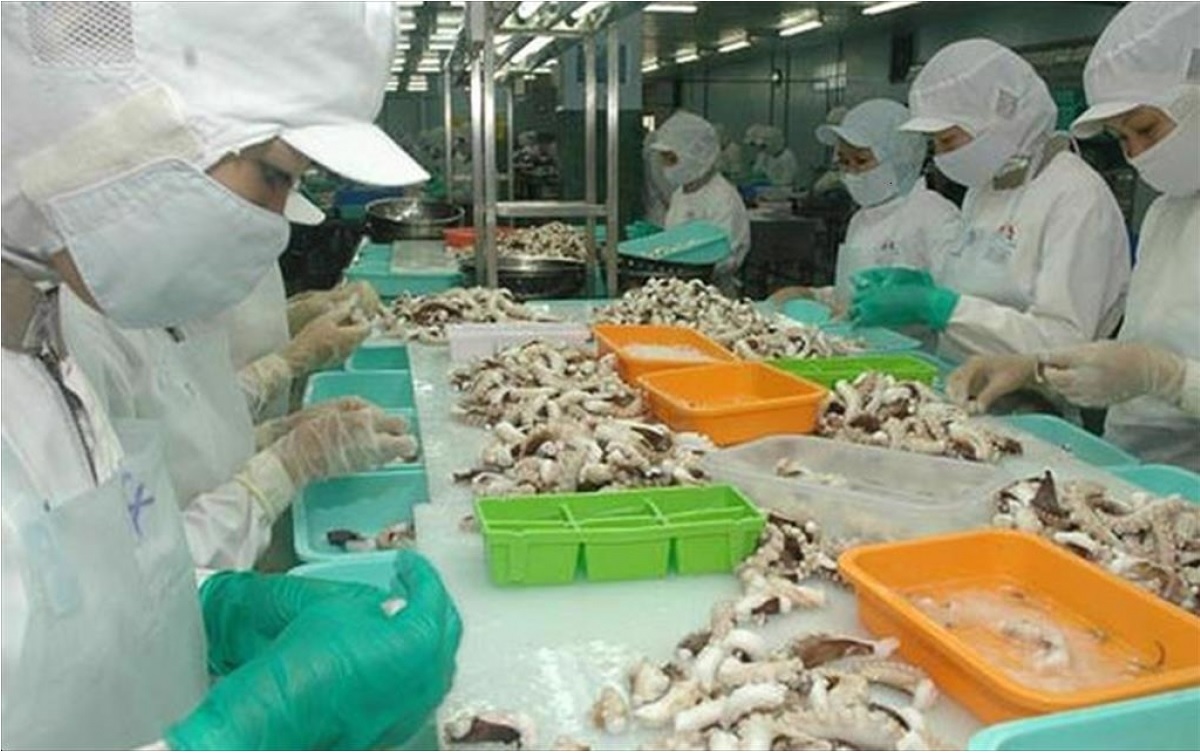(seafood.vasep.com.vn) Vietnam's cephalopod exports in the first 5 months of 2023 amounted to over 240 million USD, reflecting a 13% decline compared to the corresponding period last year. In May 2023 alone, the export value for this product reached 52 million USD, showing a decrease of 18% over the same period.
Despite the overall decline in Vietnam's seafood exports, the export of cephalopods experienced a comparatively smaller decrease when compared to other main seafood products. Except for Japan, the export of cephalopods to the main consumer markets witnessed a double-digit decline. However, exports to smaller markets, such as Malaysia, Australia, Taiwan, and the Philippines, demonstrated a positive double-digit growth ranging from 15% to 75%.
The decline in exports can be attributed to various factors, including inflation and the global economic recession, which have resulted in reduced consumption demand from the markets. Additionally, enterprises involved in cephalopod exports have encountered challenges in terms of higher raw material prices and unfavorable weather conditions for fishing activities.
Moreover, the IUU (Illegal, Unreported, and Unregulated) yellow card has not been lifted, leading to an unstable catch and increased raw material costs. Although raw material prices have risen in the past, adjustments have not been made in a timely manner during the current period, thereby adding further costs to the total expenses. Consequently, this situation has diminished the competitiveness of enterprises.

In terms of exported cephalopod products, squid constituted the majority at 57%
In terms of exported cephalopod products, squid constituted the majority at 57%, while the remaining portion comprised octopus. During the first 5 months of 2023, there was a decline in the export value of squid by 11%, and octopus exports experienced a decrease of 15% compared to the same period in 2022. Among the exported cephalopod products, processed cephalopods (HS code 16) exhibited the least bearish trend, with a drop of nearly 2% to reach 21 million USD. Japan emerged as the primary import market for this product from Vietnam, accounting for $13 million, which represented 20% of total imports of squid and octopus into Japan from Vietnam.
Regarding live/fresh/frozen squid products (HS code 03), there was a slight decrease of 5% amounting to 72 million USD. Japan retained its position as the largest import market for this product, with imports valued at 29 million USD, constituting 45% of total imports of squid and octopus into Japan from Vietnam.
As of May this year, Vietnam's cephalopod products have been exported to 65 markets. Top 10 largest import markets of Vietnam's cephalopods include Korea, Japan, Thailand, China & HK, Italy, USA, Malaysia, Taiwan, Spain and France.
South Korea is Vietnam's largest import market of cephalopods, accounting for 35%. By May 2023, cephalopod exports to South Korea reached 84 million USD, down 13%. Octopus is Vietnam's main export product to this market. Korea mainly imports from Vietnam frozen cut octopus, whole cleaned and frozen octopus.
Positive signal from the Japanese market

Japan is the second largest import market of Vietnamese cephalopod products
Japan holds the second position as Vietnam's largest import market for cephalopods, accounting for 27% of the total. Notably, Vietnam's exports of cephalopods to Japan have shown more promising growth compared to the Korean market. In the first five months of 2023, exports to Japan reached 64 million USD, marking a 4% increase compared to the same period in 2022.
The decline in Japan's domestic cephalopod production coupled with the rising demand for instant and convenient products due to modern lifestyles and time constraints has created a favorable environment for Vietnam's cephalopod exports to Japan.
According to the World Trade Center (ITC) data, Japan witnessed a significant surge in cephalopod imports during the first four months of this year, amounting to 409 million USD, which represents a 16% increase over the same period last year. Japan notably increased its imports of cephalopods from Mauritania and Peru while reducing imports from China. The import of frozen octopus experienced a staggering 55% growth, reaching 115 million USD during the initial four months of the year.
However, in early 2023, numerous cephalopod exporters were compelled to downsize their operations or even close some factories due to reduced market demand and high inflation. It is expected that the export activities in the third quarter will show improvement compared to the previous two quarters. However, procuring raw materials will pose challenges as fishing output in the world's seas continues to decline, fishing bans come into effect, and the upcoming rainy season further decreases the supply.
As a result, businesses are urging the Prime Minister to promptly implement practical support policies, including lowering loan interest rates, developing seaport infrastructure, and providing support for importing raw materials to meet the production and processing requirements of enterprises.
Compiled by Thuy Linh